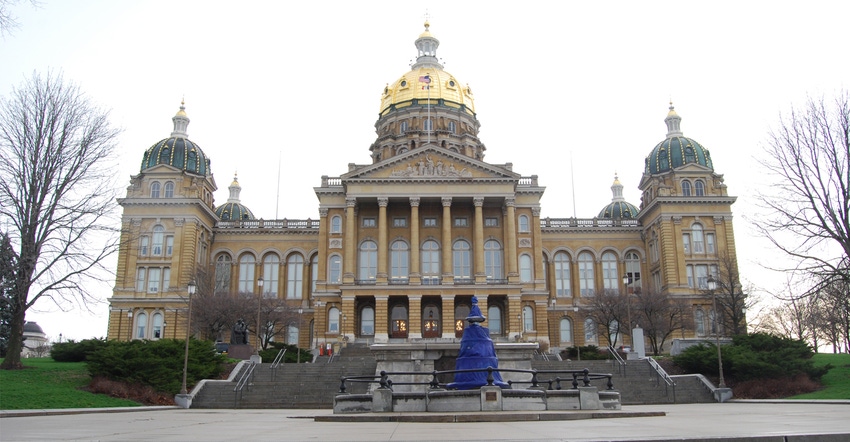February 24, 2020

Addressing the Iowa Legislature in mid-January, Gov. Kim Reynolds delivered her State of the State speech. She highlighted plans to introduce a 1-cent sales tax increase that would include three-eighths of 1 cent to fund the Natural Resources and Outdoor Recreation Trust Fund, commonly known as Iowa’s Water and Land Legacy fund. Some experts say the increase could generate about $172 million more for water quality funding.
Specifically, the IWILL bill that’s been introduced and supported by the governor seeks to amend Iowa Code Ch. 461 (The Natural Resources and Outdoor Recreation Act) and establish a natural resources and outdoor recreation trust fund.
Basically, this bill would alter the percentage of money allocated from the trust fund to its separate trust accounts, which include the natural resources trust account, soil conservation and nonpoint source water protection trust account (administered by the Iowa Department of Agriculture and Land Stewardship), the watershed protection trust account (jointly administered by IDALS and Department of Natural Resources) and a few other accounts. The bill would reduce allocations of trust fund money to the Iowa resources enhancement and protection (REAP) fund.
Goal: Boost water quality efforts
Additionally, the bill proposes to transfer trust fund money allocated to the soil conservation and nonpoint source water protection trust account and watershed protection trust account to the water quality infrastructure fund. That fund is used to support “nonpoint water quality programs” administered by IDALS. The bill would also transfer money to the water quality financial assistance fund to support wastewater and drinking water treatment financial assistance and the water quality financing program — both administered by the Iowa Finance Authority.
The governor also proposes that trust fund money may be transferred from the soil conservation and nonpoint source water protection trust account to the water quality infrastructure fund, and from the watershed protection trust account to the water quality financial assistance fund upon direction by the custodial department. The bill also eliminates some current funding sources, including the annual appropriation to the REAP fund from the general fund — due to expire on June 30, 2021, among other things.
Calling for more cost-share money
The IWILL funding proposal is part of the governor’s overall tax bill and has received support from groups across the ag community. Generally, several ag groups have all expressed support for long-term funding of the trust fund in accordance with the Iowa Nutrient Reduction Strategy.
Specifically, some groups have proposed modification of the allocation of money collected. Some would like to see more funding going directly to water quality projects and to cost-share for farmers and landowners installing conservation practices, cover crops, bioreactors, buffer strips, etc. — and less of the revenue collected going to parks and outdoor recreation projects in the state.
For more information on these bills as introduced before Feb. 18, see Senate Study Bill 3116 and its companion House Study Bill 657 at legis.iowa.gov. Since this is a tax bill, it is “funnel-proof.”
The Legislature sets two self-imposed “funnel” deadlines to keep on pace. The first was Feb. 21. We will keep you updated on which bills affecting farmers survived the funnel.
Next month, we’ll cover cases and current legal issues affecting the livestock industry in Iowa, and we’ll discuss legislation introduced at the state level that may impact livestock producers.
Herbold-Swalwell is an attorney with Brick-Gentry in Des Moines. Contact [email protected].
About the Author(s)
You May Also Like






